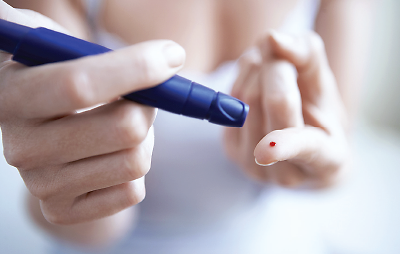PTSD Linked to Increased Risk for Type 2 Diabetes in Women
Abstract
PTSD treatment should be expanded to address behaviors that could lead to increased weight gain and type 2 diabetes in women, advise researchers.
Women with the highest number of posttraumatic stress disorder (PTSD) symptoms may have a twofold increased risk of developing type 2 diabetes compared with women without PTSD, according to a study published in JAMA Psychiatry.

Researchers from the Harvard School of Public Health and the Mailman School of Public Health at Columbia University analyzed data from a large-scale longitudinal study to examine whether an association exists between PTSD and the incidence of type 2 diabetes in women.
“One in nine American women will suffer from PTSD at some point in their lives,” Karestan Koenen, Ph.D., the study’s senior author and a professor of epidemiology at Columbia, told Psychiatric News. “Understanding the physical health consequences of the disorder is critical.”
According to Koenen and colleagues, the current study was prompted by previous research suggesting that trauma and PTSD have profound effects on mental health as well as on physical health, which includes inflammation and endocrine dysfunction. The researchers noted that while previous studies have shown a correlation between PTSD and type 2 diabetes, the majority of the populations examined were military members or men.
“We wanted to see whether PTSD was associated with new onset of type 2 diabetes in a civilian sample of women,” Koenen explained. “We also wanted to know whether health behaviors like diet, smoking habits, and exercise might explain why women with PTSD could be at higher risk of type 2 diabetes.”
After gathering health information from nearly 50,000 women as part of the Nurses’ Health Study, Koenen and colleagues analyzed data from annual follow-ups extending over 22 years. Participants were aged 24 to 42 at study enrollment.
The analysis showed that PTSD symptoms were associated with the development of type 2 diabetes in a “dose-response” fashion—the greater the number and severity of PTSD symptoms, the greater a woman’s risk of developing type 2 diabetes. Of the approximately 2,000 women who reported the highest number of PTSD symptoms (six to seven symptoms) in any given year of the study, 12 percent developed type 2 diabetes, whereas fewer than 7 percent of the women who reported no trauma exposure had developed type 2 diabetes.
Data also showed that antidepressant use and elevated body mass index accounted for nearly half—34 percent and 14 percent, respectively—of the increased risk of type 2 diabetes in participants with PTSD. Smoking, diet quality, alcohol intake, and physical activity did not increase risk for type 2 diabetes in women with PTSD, according to the study.
Coauthor Andrea Roberts, Ph.D., a research associate in behavioral science at the Harvard School of Public Health, stated that “women with PTSD and the health professionals who care for them should be aware that these women are at greater risk for diabetes. As fewer than half of Americans with PTSD receive treatment, our study adds urgency to the effort to improve access to mental health care to address factors that [could potentially] contribute to diabetes and other chronic diseases.”
Koenen told Psychiatric News that the research team is preparing to examine the biological mechanisms underlying the relationship between PTSD and type 2 diabetes and further examine the effect of antidepressant use on PTSD-related diabetes.
“Our health care system treats the brain and body as if they are separate,” said Koenen. “This study reiterates that patients with PTSD need treatment that integrates mental and physical health.”
The study was funded by the National Institutes of Health. ■
An abstract of “Posttraumatic Stress Disorder and Incidence of Type 2 Diabetes Mellitus in a Sample of Women: A 22-Year Longitudinal Study” can be accessed here.



